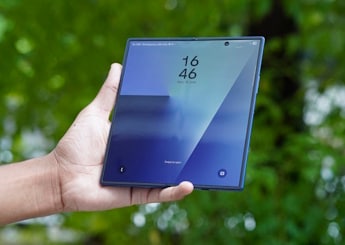- Home
- Science
- Science News
- Mealworms Can Eat Plastic, But Study Shows Limited Impact on Pollution Crisis
Mealworms Can Eat Plastic, But Study Shows Limited Impact on Pollution Crisis
A study shows mealworms eat plastic but can't manage the immense scale of global plastic pollution alone

Photo Credit: Unsplash/ Robert Gunnarsson
Even a natural genius at plastic recycling like the yellow mealworm
An experiment conducted by researchers at the University of British Columbia has revealed the limited potential of mealworms in addressing plastic pollution. The study, published in Biology Letters on December 4, estimated that 100 mealworms would take approximately 138 days, or 4.5 months, to consume a single disposable face mask made from polypropylene. The findings underscore the challenges of relying on insect larvae for large-scale plastic degradation as per various reports.
Plastic Pollution and Microplastics: A Growing Concern
The research focused on microplastics, which are plastic fragments smaller than 5 millimetres and linked to severe health issues such as increased risks of heart attacks and strokes, as suggested by prior studies. Earlier experiments had demonstrated the ability of several insect species, including yellow mealworms (Tenebrio molitor) and superworms (Zophobas atratus), to degrade various types of plastics. However, most of those studies utilised powdered or pure forms of plastic, rather than the manufactured items people use daily, as reported by researchers.
Real-World Testing and Observations
Led by ecologist Dr Michelle Tseng, the team opted for a more realistic approach by using disposable face masks containing additional materials from manufacturing processes. To encourage consumption, the plastic was processed into microbits and blended with wheat bran. According to Dr Tseng in a statement, the insects readily consumed this mixture, termed “face-mask granola.”
No significant reduction in the insects' lifespan was observed. However, questions regarding the safety of using these larvae as feedstock in agriculture, particularly for poultry, were raised. Dr Tseng noted that mealworms consuming large amounts of microplastics may not remain safe for further use in food chains, as reported.
Challenges and Future Directions
The feasibility of using mealworms for large-scale plastic degradation remains doubtful due to the slow consumption rate. During the peak of the COVID-19 pandemic, Asia alone reportedly used 2 billion face masks per day, highlighting the impracticality of such a solution. Researchers have suggested that exploring the microbial composition of these insects could lead to advancements in waste breakdown technologies. Nonetheless, reducing plastic usage is emphasised as the most effective approach to managing this environmental crisis.
Catch the latest from the Consumer Electronics Show on Gadgets 360, at our CES 2026 hub.
Related Stories
- Samsung Galaxy Unpacked 2025
- ChatGPT
- Redmi Note 14 Pro+
- iPhone 16
- Apple Vision Pro
- Oneplus 12
- OnePlus Nord CE 3 Lite 5G
- iPhone 13
- Xiaomi 14 Pro
- Oppo Find N3
- Tecno Spark Go (2023)
- Realme V30
- Best Phones Under 25000
- Samsung Galaxy S24 Series
- Cryptocurrency
- iQoo 12
- Samsung Galaxy S24 Ultra
- Giottus
- Samsung Galaxy Z Flip 5
- Apple 'Scary Fast'
- Housefull 5
- GoPro Hero 12 Black Review
- Invincible Season 2
- JioGlass
- HD Ready TV
- Laptop Under 50000
- Smartwatch Under 10000
- Latest Mobile Phones
- Compare Phones
- Infinix Note Edge
- Lava Blaze Duo 3
- Tecno Spark Go 3
- iQOO Z11 Turbo
- OPPO A6c
- Samsung Galaxy A07 5G
- Vivo Y500i
- OnePlus Turbo 6V
- Lenovo Yoga Slim 7x (2025)
- Lenovo Yoga Slim 7a
- Lenovo Idea Tab Plus
- Realme Pad 3
- Garmin Quatix 8 Pro
- NoiseFit Pro 6R
- Haier H5E Series
- Acerpure Nitro Z Series 100-inch QLED TV
- Asus ROG Ally
- Nintendo Switch Lite
- Haier 1.6 Ton 5 Star Inverter Split AC (HSU19G-MZAID5BN-INV)
- Haier 1.6 Ton 5 Star Inverter Split AC (HSU19G-MZAIM5BN-INV)
-
 Global RAM Shortage Is Reportedly Causing GPU, Storage Drive Prices to Skyrocket
Global RAM Shortage Is Reportedly Causing GPU, Storage Drive Prices to Skyrocket
-
 Viruses and Bacteria Evolve Differently in Space, ISS Study Finds
Viruses and Bacteria Evolve Differently in Space, ISS Study Finds
-
 Rockstar Games Said to Have Granted a Terminally Ill Fan's Wish to Play GTA 6
Rockstar Games Said to Have Granted a Terminally Ill Fan's Wish to Play GTA 6
-
 Samsung Galaxy Z Fold 8 Said to Feature Dual Ultra-Thin Glass OLED Panel to Reduce Crease Visibility
Samsung Galaxy Z Fold 8 Said to Feature Dual Ultra-Thin Glass OLED Panel to Reduce Crease Visibility






![[Sponsored] Haier C90 OLED TV | Dolby Vision IQ, 144Hz OLED and Google TV in Action](https://www.gadgets360.com/static/mobile/images/spacer.png)





